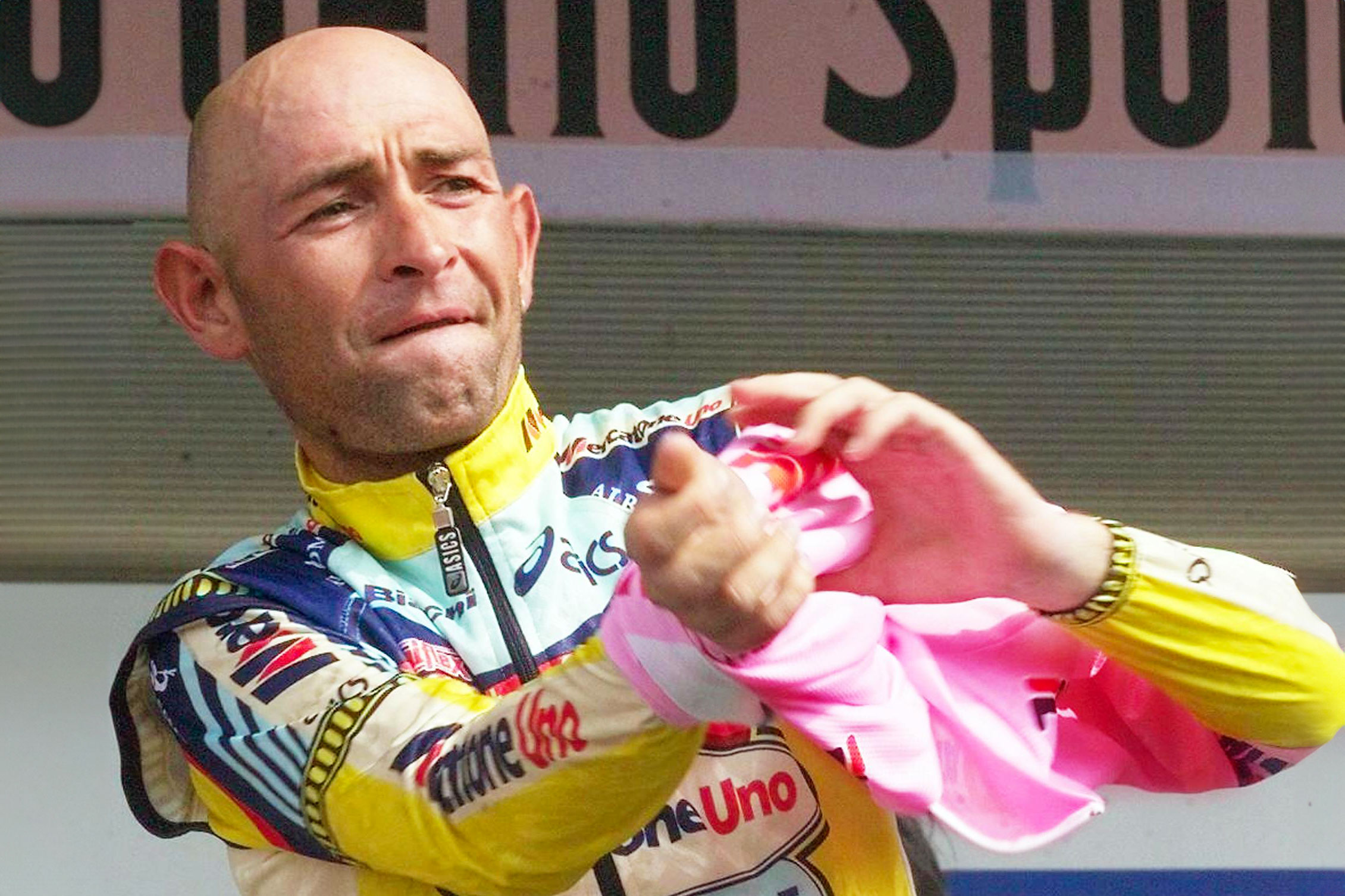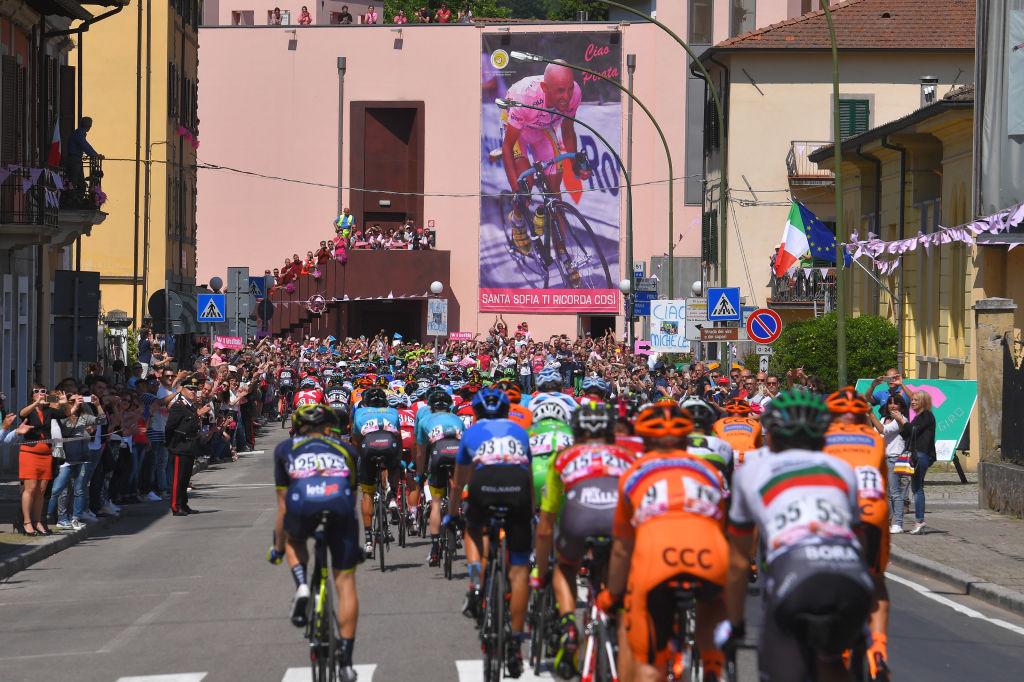Tadej Pogačar wasn’t born when Marco Pantani completed the Giro d’Italia-Tour de France double in 1998. However, their careers will somehow follow the same road and draw constant comparisons over the next three weeks as the Slovenian attempts to become the first rider since ‘Il Pirata’ to achieve one of cycling’s most difficult feats.
Just seven riders have managed to complete the Giro-Tour double in the same season, the others being Fausto Coppi (in 1949 and 1952), Jacques Anquetil (1964), Eddy Merckx (1970, 1972 and 1974), Bernard Hinault (1982 and 1985), Stephen Roche (1987), Miguel Indurain (1992 and 1993 ) and Pantani in 1998.
The likes of Chris Froome and Tom Dumoulin have gone close in recent years but like so many others, failed to win the Tour de France after the mental and physical fatigue of the Giro d’Italia.
Pogačar has already won the Tour de France in 2020 and 2021 and finished third on his Grand Tour debut back at the 2019 Vuelta a España. If he can also finish on the podium of his first Giro d’Italia, he’d join Felice Gimondi and Bernard Hinault in another show of his precocious Grand Tour talent.
The Slovenian has never raced two Grand Tours in the same season but he’s now 25 and is in his sixth season at WorldTour level. This year seems the right moment to aim higher, to make cycling history, and join the greats of the sport – the exclusive group of Giro-Tour winners.
This season, there are five weeks between the conclusion of the Giro in Rome on Sunday, May 26 and the Tour’s Grand Départ in Florence on Saturday, June 29.
Giro d’Italia organisers RCS Sport have reduced the climbing in the race by almost 20% while also including 70km of time trials to entice Pogačar to ride. A significant fee has almost certainly been paid to UAE Team Emirates and then onwards to their superstar to ensure his presence at La Corsa Rosa.
UAE Team Emirates have carefully reduced Pogačar’s racing and training load this spring – just the 10 days (and seven wins) – so he can stay fresh for the momentous task of the Giro-Tour challenge.
Pogačar only started his season in March with an 81km solo win at Strade Bianche and a podium at Milan-San Remo, also skipping the cobbled Classics despite winning the Tour of Flanders last season.
In addition to the Italian outings and a win at Liège-Bastogne-Liège, a dominant week at the Volta a Catalunya took up seven of those 10 days. Liège came after a three-week block of altitude training in Sierra Nevada in southern Spain. Everything has been planned around the May-July double peak of form, with even the Paris Olympic Games becoming secondary to that mammoth objective.
Last year, a crash at Liège-Bastogne-Liège and a complex scaphoid fracture meant Pogačar spent much of May off the bike and compromised his Tour de France. So far this year, though, everything has gone to plan, with Pogačar racking up commanding victories with apparent ease and happiness while also avoiding any pitfalls.
So far, all is going to plan
Pogačar arrived in Turin on Wednesday for the Giro d’Italia Grande Partenza – held in a northern suburb of the city named Venaria Reale – relaxed and confident.
“Last year was harder than this year both mentally and physically because of my injury, I suffered a lot,” the overwhelming race favourite told La Gazzetta dello Sport.
“This year my goals are clear and so is the plan to achieve them. It’s easier mentally, at least it seems so. Maybe after the Tour, I’ll give a different opinion when we see how much I’ve got left in the tank.”
The combination of physical effort and mental expectation is the toughest part of the Giro-Tour double challenge. The Giro d’Italia can be hugely demanding, especially if the weather is wet and cold, while the risk of crashes and illness becomes much higher.
As was the case with Pogačar last year, two-time Tour winner Jonas Vingegaard might find himself off the pace as a result of a spring accident this July, depending on his recovery from a terrible crash at Itzulia Basque Country. But whether he’s on top form or not, he and Pogačar’s Tour rivals will only peak for July after weeks of carefully calculated altitude training.
In contrast, he will have to stay mentally focused and keep training even after winning the Giro d’Italia, should he do so.
He – like Geraint Thomas, who is also taking on the double – will have to try to recover as best as possible and train at altitude and then remain at his best in almost three months’ time at the end of the Tour de France on July 21.
“I’m still far from doing the double, I know that others have tried and failed,” Pogačar admitted.
“You have to start the Giro in good shape, win the Giro, then start the Tour in good shape and finally win the Tour. It’s going to be a hell of a job. We’ll take it step by step and hope we can pull it off.”
Giro d’Italia memories
Pogačar is making his Giro d’Italia debut but has an advantage; he considers Italy as a second cycling home.
He has travelled from Slovenia to Italy to race ever since he was a schoolboy and watched the Giro d’Italia on television as he fell in love with cycling and discovered his own talents.
In 2014, Pogačar raced in Austria before his team drove to Trieste close to the border with Slovenia to watch compatriot Luka Mezgec triumph on the Giro’s final stage.
“It was a dream come true to see the Giro and see a Slovenian rider win the stage. Afterwards, we asked riders and teams for bidons, like every kid does at races. It’s a special Giro memory for me,” Pogačar revealed.
A decade on, Pogačar is the role model that so many young riders look up to as he leads the way in Slovenia’s hopes for success in the sport. He’s arguably Slovenia’s Pantani – coming with the hope that his career does not end in the same way as the troubled Italian.

‘Il Pirata’ completed the Giro-Tour double in 1998 but a year later he was disqualified from the Italian Grand Tour on an infamous day at Madonna di Campiglio. He was in the maglia rosa, over five minutes clear, and two days from glory in Milan before being thrown out of the race after returning a high blood haematocrit level during a ‘health check’ that predated the creation of the EPO test.
Despite returning to racing at the following Giro, Pantani was never the same, refusing to accept he was at fault and suffering complex mental problems that were worsened by a cocaine addiction which began following his 1999 Giro expulsion. He died alone in a Rimini hotel room on Valentine’s Day five years later following an overdose on a toxic cocktail of cocaine and anti-depression drugs.
Pogačar’s character is very different to that of the mercurial and often shy Italian, however, and he has a very different outlook on life – while hopefully the dark days and excesses of the EPO generation are also behind us.
Such are Pogačar’s apparent talents, though, that he could well dominate the Giro d’Italia in the manner of Pantani’s 1998 victory and other great riders from history as they completed the first half of the double.
He may not go on to complete the double, but many people admire his courage in trying, a rarity in modern cycling. He’s already a double Tour winner but taking on the double adds to the difficulty in adding a third title this summer.
Attempting the feat could remove another chance to move closer to the ultimate goal of winning five Tours, though he’s perhaps aiming even higher – ready to risk Tour de France success for a place in history. Pantani would have admired his uncalculated bravery and love of a challenge.
“I’m too young to remember Pantani when he was alive but I’d love to achieve what Pantani did. I know how important he was for cycling in Italy and around the world,” Pogačar said.
Remembering Pantani in Oropa
While comparisons between Pogačar and Pantani could become nauseating during the three weeks of the Giro, especially in the optic of Italy’s mostly blind admiration for one of the country’s cycling heroes, they can be justified on Sunday’s second stage to the Oropa Sanctuary in the Italian Alps, north of Turin.
In 1999, Pantani had been in the maglia rosa for one day when the Giro raced to Oropa on stage 15 – the third summit finish of five during the race – and pulled off one of his most amazing performances.
He dropped his chain at the bottom of the 11.8km climb and was forced to stop at the side of the road but then furiously chased back on, passing 49 riders, including nearest GC rival Paolo Savoldelli, before taking the solo win at the summit.
It was a moment of ‘peak’ Pantani for the Italian tifosi but came only six days before he was expelled from the race in Madonna di Campiglio.
Many people want Pogačar to somehow celebrate Pantani’s memory by winning in Oropa on Sunday, perhaps with a similarly spectacular attack.
“Pogačar has got to try to win the stage to Oropa and take the maglia rosa,” Pantani’s former directeur sportif Beppe Martinelli told La Gazzetta dello Sport recently.
“He should do it to remember Pantani’s win there, to honour the Giro and Italy. His Giro-Tour double attempt has to start in Oropa.”

